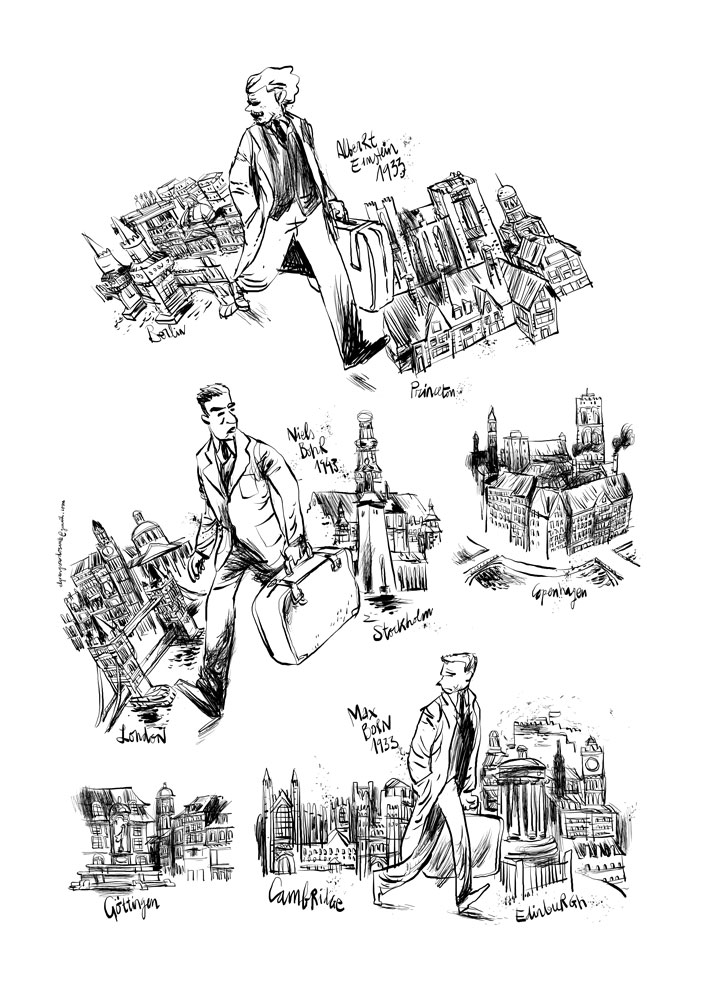Any physicist wishes they could have lived during the early years of the 20th century because they witnessed the rebirth of physics. During the years of prosecution and hatred, scientists took advantage of their different ideas on matter and radiation to arrange meetings where they could gather and discuss. Among those who were forced to leave Germany we find relevant roles in the making of Modern Physics, the one that would explore the concept of quantum and probability. Some of them found a home in the United States, such as Albert Einstein, Niels Bohr, Max Born, James Franck, John von Neumann and Arthur Haas. They were all key people in the development of Quantum Mechanics, but not all of them accepted it. The discussions between Einstein and Bohr are particularly well known: Einstein was reluctant and Bohr a fervent advocate. They had extraordinary minds able to succeed even in other fields. Arthur Haas, for example, worked also in relativist cosmology and John von Neumann, also known as the father of computers, in Mathematics. Several Nobel Prize awards honor this generation of physicists, but mutual respect was better than any other award. Born once said on Einstein that he was «the greatest achievement of human thinking about nature».
Física moderna

